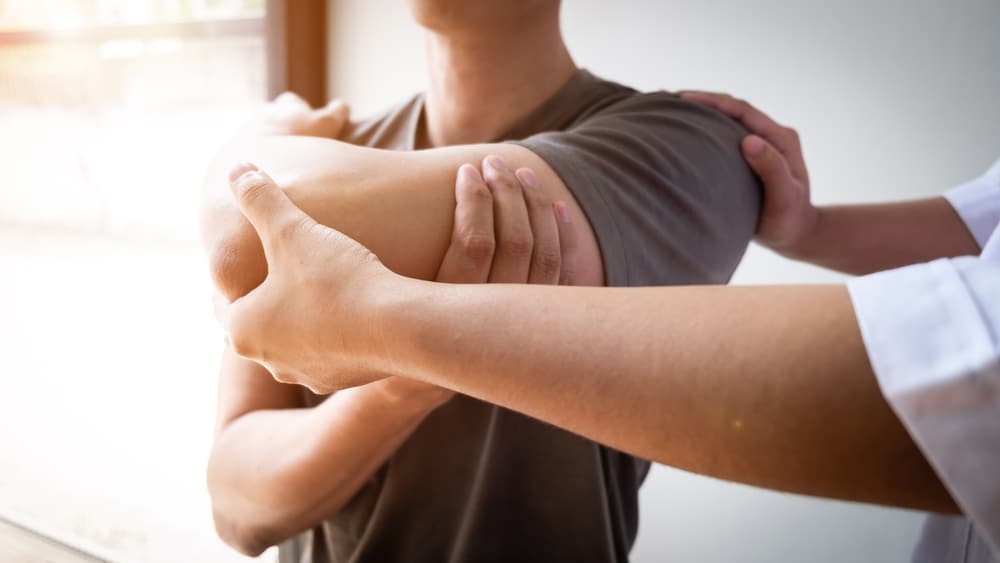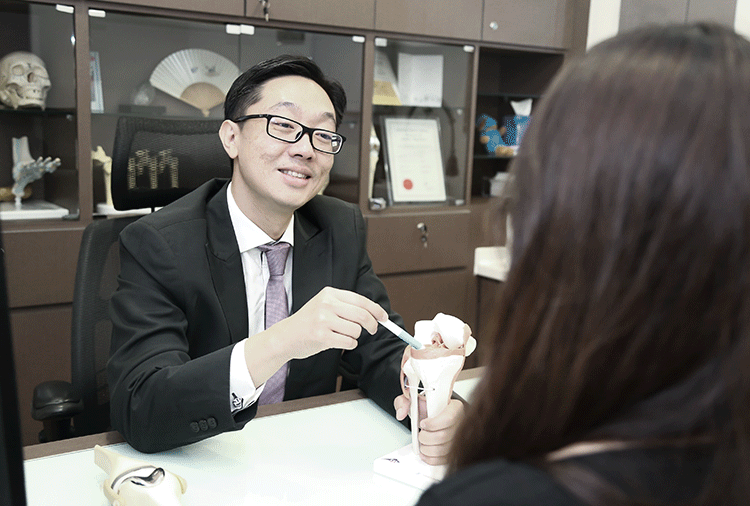Rotator cuff tears are a common cause of shoulder pain and dysfunction, affecting individuals of all ages, but particularly those who engage in repetitive overhead activities or have sustained shoulder injuries. The rotator cuff consists of four muscles and their tendons, which stabilise the shoulder joint and allow for a wide range of arm movements. A tear in one or more of these tendons can lead to significant pain, weakness, and limited mobility, impacting daily activities and quality of life.
What Is Rotator Cuff Tears, And Why Is Treatment Important?
The rotator cuff is a group of four muscles and tendons that stabilise the shoulder joint and allow for a wide range of motion. A rotator cuff tear occurs when one or more of these tendons are injured, either partially or completely torn. This can result from acute injury or chronic wear and tear. Treatment is essential to restore shoulder function, alleviate pain, and prevent further damage.
What Are The Causes And Risk Factors Of Rotator Cuff Tears?
Several factors contribute to the development of rotator cuff tears, ranging from acute injuries to chronic degenerative changes
Causes
- Acute Injury
- Trauma – A sudden, forceful impact or injury, such as falling on an outstretched arm or lifting something heavy, can cause a rotator cuff tear.
- Dislocation – Shoulder dislocations can lead to tearing of the rotator cuff tendons.
- Degenerative Changes
- Wear and Tear – Over time, the tendons can wear down due to repetitive use, particularly in individuals over 40. This is the most common cause of rotator cuff tears.
- Tendon Degeneration – As tendons age, they lose elasticity and strength, making them more susceptible to tearing.
- Repetitive Motion
- Overuse – Repetitive overhead activities, such as those performed by athletes (e.g., baseball pitchers, tennis players) and manual laborers (e.g., painters, carpenters), can strain the rotator cuff and lead to tears over time.
Risk Factors:
- Age
- The risk of rotator cuff tears increases with age, particularly for those over 40, as tendons naturally degenerate and weaken over time.
- Occupation
- Jobs requiring repetitive overhead movements or heavy lifting place significant stress on the rotator cuff, increasing the risk of tears.
- Sports Participation
- Athletes involved in sports that demand repetitive shoulder movements, such as baseball, tennis, swimming, and weightlifting, are at higher risk for rotator cuff injuries.
- Family History
- A family history of rotator cuff injuries may increase the likelihood of developing similar issues, suggesting a genetic predisposition.
- Poor Posture
- Chronic poor posture, such as rounded shoulders, can alter the mechanics of the shoulder joint, leading to impingement and increased risk of tendon wear and tear.
- Smoking
- Smoking can reduce blood supply to the tendons, impairing their ability to heal and increasing the risk of degeneration and tearing.
- Previous Shoulder Injuries
- A history of shoulder injuries, such as dislocations or fractures, can weaken the tendons and make them more prone to tearing.
What Are The Common Symptoms Of Rotator Cuff Tears?
Rotator cuff tears are a common shoulder injury, and the symptoms can vary depending on the severity of the tear. Here are some common symptoms to look out for:
- Pain – This is the most common symptom. It can be a dull ache deep in the shoulder, which may worsen when you use your arm away from your body. The pain might also disturb your sleep, especially if you lie on the affected shoulder.
- Weakness – You might notice a weakness in your shoulder, particularly when you try to lift or rotate your arm. This weakness can make everyday activities like combing your hair or reaching for objects difficult.
- Limited Range of Motion – A torn rotator cuff can limit your shoulder’s range of motion. You might find it challenging to lift your arm above your head or behind your back.
- Crackling Sensation – When you move your shoulder in certain ways, you might feel or hear a crackling or popping sensation. This is known as crepitus and can occur due to the rough edges of the torn tendon rubbing against surrounding tissues.
- Shoulder Stiffness – Over time, if not treated, the shoulder can become stiff due to disuse and inflammation. This stiffness can further limit your ability to move the shoulder comfortably.
- Swelling – In some cases, there might be visible swelling or inflammation around the shoulder area.
How Is Rotator Cuff Tears Diagnosed?
Rotator cuff tears can significantly impact shoulder function, leading to pain and weakness. Proper diagnosis is crucial for effective treatment and recovery. Here’s a look at how these injuries are diagnosed.
Clinical Examination
The first step in diagnosing a rotator cuff tear is a thorough clinical examination by a healthcare professional. This examination typically includes:
- Medical History – Discussion of symptoms, including the onset of pain, nature of the pain, and any associated injuries or activities.
- Physical Examination – The doctor will assess shoulder strength, range of motion, and any tenderness. Special manoeuvres may be performed to pinpoint the source of pain and weakness.
Diagnostic Tests
If a rotator cuff tear is suspected based on the clinical examination, various diagnostic tests may be ordered to confirm the diagnosis and determine the extent of the injury.
- X-rays
- Ultrasound
- Magnetic Resonance Imaging (MRI)
What Are The Rotator Cuff Tears Treatment Options?
Conservative Management
- Rest and Activity Modification – Avoid activities that exacerbate the pain and allow the shoulder to rest.
- Pain Management – Over-the-counter pain relievers, such as NSAIDs, can help reduce pain and inflammation.
- Physical Therapy – A physical therapist can design a program of exercises to strengthen the shoulder muscles, improve flexibility, and restore function.
Medications
- NSAIDs – Nonsteroidal anti-inflammatory drugs to reduce pain and swelling.
- Corticosteroid Injections – Injections into the shoulder joint can provide relief from pain and inflammation.
Surgical Intervention
- Arthroscopic Surgery – A minimally invasive procedure to repair the torn tendon using small incisions and a camera.
- Open Surgery – In more severe cases, open surgery may be required to repair the tendon.
- Tendon Transfer – In cases where the tear is irreparable, a tendon from another part of the body may be used to replace the damaged tendon.
- Shoulder Replacement – In severe cases involving significant damage to the shoulder joint, shoulder replacement surgery may be considered.
Recovery And Prevention Strategies For Rotator Cuff Tears
Recovery Strategies
- Follow Rehabilitation Protocols – Adhering to a structured rehabilitation program designed by a physical therapist is crucial for recovery.
- Gradual Return to Activity – Gradually increase activity levels as the shoulder heals, avoiding sudden or excessive stress on the shoulder.
- Pain Management – Use prescribed medications and ice packs to manage pain and swelling during recovery.
Prevention Strategies
- Strengthening Exercises – Regularly perform exercises to strengthen the rotator cuff and surrounding shoulder muscles.
- Proper Technique – Use proper technique when performing activities that involve the shoulder, such as lifting or sports.
- Ergonomic Adjustments – Make ergonomic adjustments to your workspace or activities to reduce strain on the shoulder.
- Stretching – Incorporate regular stretching into your routine to maintain flexibility and reduce the risk of injury.
- Healthy Lifestyle – Maintain a healthy weight and avoid smoking, as obesity and smoking can impair healing and increase the risk of shoulder problems.
By following these recovery and prevention strategies, you can optimise their recovery from rotator cuff tears and reduce the risk of future shoulder injuries.






